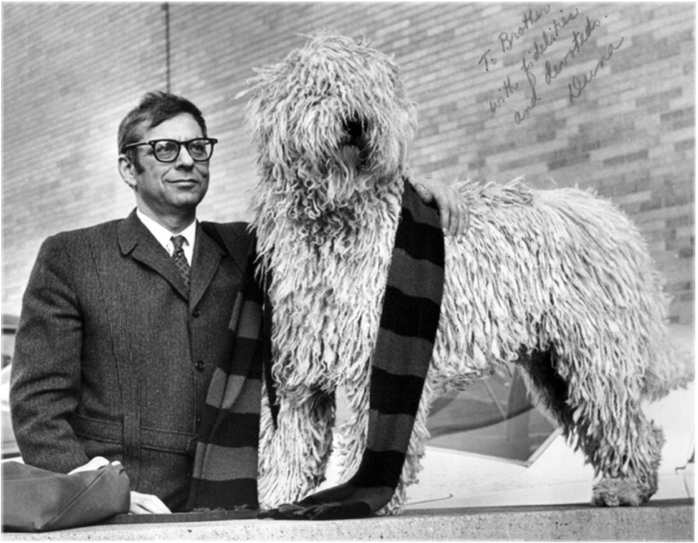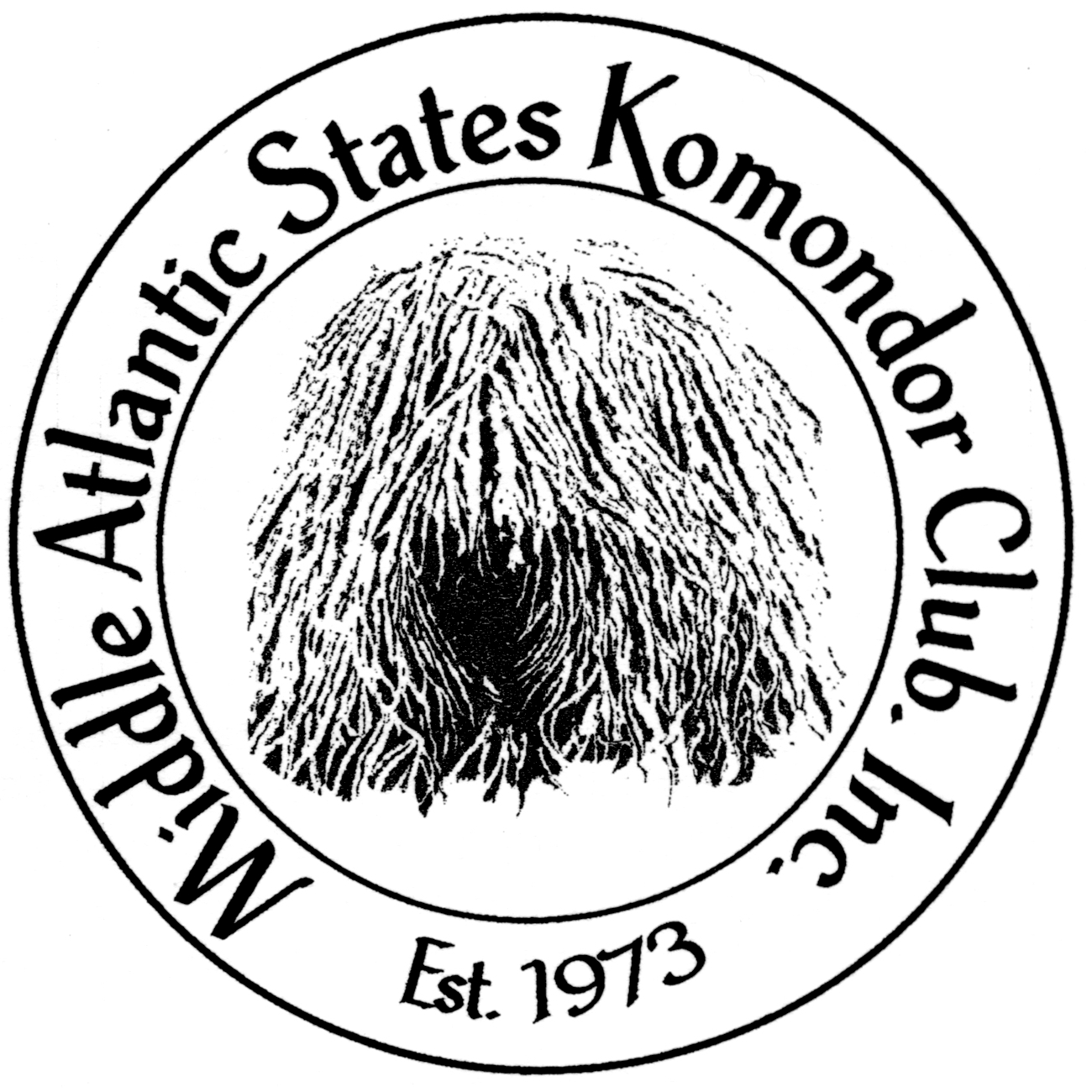Marion J. Levy, Jr.
December 12, 1918 ~ May 26, 2002

May 26 marked the passing of one of our Club founders, Marion J. Levy Jr.. With his passing, we have lost not only a friend, but also the sage of our breed. Founders’ goal in forming M.A.S.K.C. was to establish a club, which would serve to help preserve the Komondor while abiding by democratic principles. Marion often asked: “When was the last time you learned anything from someone who agreed with you?” As President, this philosophical man established the tone of the club by adhering firmly to his belief in openness and discussion, and that every voice has a right to be heard.
Many people, who knew Marion through the dogs, do not fully realize the extent of his scholastic achievements. Princeton University put their obituary for him on their website. He is described as: “A larger-than-life figure on the Princeton campus, Levy was known for his scholarly contributions, his passionate involvement in academic issues and some unusual non-academic activities. He often was seen in the company of the Komondor dogs he loved and bred, and a self-published book, “Levy’s Laws of the Disillusionment of the True Liberal,” became a classic often quoted far beyond Princeton.
“Whether drawing a trail of onlookers when he was walking about with his dogs or standing to raise an objection at a faculty meeting, he left a memorable impression,” said Princeton sociologist Gilbert Rozman, a colleague who also had been Levy’s student. As a scholar, Rozman noted, Levy was a strong advocate for the three departments in which he served: the sociology department, the Woodrow Wilson School of Public and International Affairs and the East Asian studies department, in which he served as chairman.”
“During the 1960s, Levy was best known for his writing on modernization theory. His two-volume study Modernization and the Structure of Societies remains as the most systematic statement of that theory, classifying all societies into two types (relatively modernized and relatively non-modernized), and analyzing the differences between the two and how the transition occurs. He later contributed to volumes on modernization in various East Asian societies.”
This is only a small portion of Marion’s many accomplishments. His passing leaves a hole hard to fill in the many lives he touched, and it is truly a loss for our breed. We were fortunate to have such a brilliant, just and outspoken man dedicated to its preservation. In response to the requests from people wishing to honor Marion in some way, I have asked our Club Treasurer to set up the M.A.S.K.C. Marion J. Levy Jr. memorial fund in his memory. Donations may be sent directly to: Clay Ward, 76 Clive Street, Metuchen, NJ 08840.
There will be a Memorial Service
at the Princeton University Chapel
at 10 A.M. on September 21, 2002
Of all the obituaries written about Marion, the one that would have pleased him the most was written by Frizbee Allen: “His absence will be celebrated by some, mourned by some and noticed by all.”
Reprinted from the New York Times
Marion Levy Jr.
(1918-2002) (correction made from 1919)
Marion J. Levy Jr., a scholar of sociology and international affairs who wrote about modernization theory, which seeks to explain why some societies undergo rapid economic development and corresponding social change, died on May 26 in Princeton, N.J., where he lived. He was 83.
The cause was complications from Parkinson’s disease, according to Princeton University.
Marion retired in 1989 as Musgrave Professor of Sociology and International Affairs at Princeton. He had taught there since 1947 and was chairman of its department of East Asian studies for a time.
He once said that “the fundamental problem posed by modernization is whether human animals can adjust as readily to longevity, affluence, and peace as they have in the past to shortgevity, poverty, and war.” He predicted that life in a modernized world “is likely to become crowded, affluent, nasty, brutish and long.”
His writings include the book “Modernization: Latecomers and Survivors” (1972), and the two-volume work “Modernization and the Structure of Societies” (1966), which examined the differences between societies that were relatively nonmodernized and those that were relatively modernized. He carried out innovative scholarship about why Japan, not China, was in the vanguard of modernization in Asia, concluding that while many assumed the two countries were similar when they were first opened to western influence, in reality the similarities were only superficial.
Marion Joseph Levy was born and raised in Galveston, TX, was a Navy lieutenant in Asia in World War II and received a doctorate in sociology from Harvard.
He is survived by his wife, Joy; a daughter, Dore J. Levy of Providence, R.I. who was a professor of comparative literature and East Asian studies at Brown; two sons, Noah, of Atlanta, and Amos, of Manhattan; five grandchildren; and a sister, Ruth Levy Kempner of Galveston.



